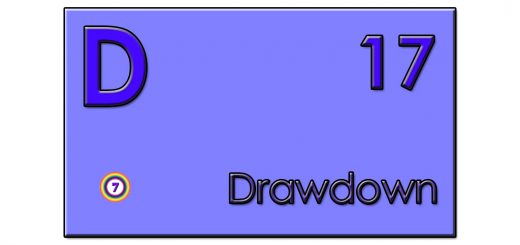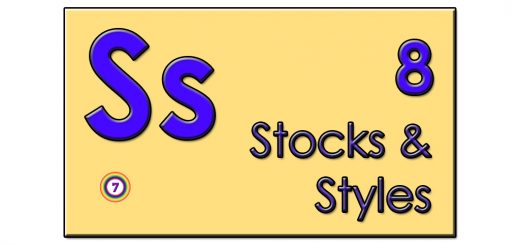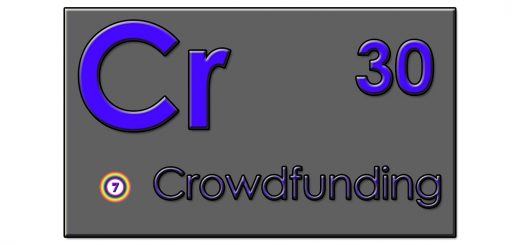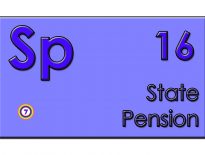Property – Elements 24

This post is part of the Elements series, a Periodic Table of all the Investing Elements that you need to take control of your financial life. You can find the rest of the posts here.
Property
What is it?
Property is an asset class, used for two purposes:
- To diversify away from equities
- For living in, as a home
Despite its suitability as a diversifier – it usually outpaces inflation over the medium term, and is not closely correlated with the stock market – property is usually seen in terms of being somewhere to live.
What kind of element is it?
Property is an asset class – a subdivision of financial assets.
You can access the asset class directly, through buying a residential property to live in, or you can use ETFs or Investment Trusts.
- These mainly invest in large-scale commercial property, though more interesting flavours (student accommodation, doctors’ surgeries, ground rents etc.) have been issued recently.
Open-ended funds (OEICs) are not suitable for property investment since the underlying assets are relatively illiquid and a rush of withdrawals can lead to the fund locking up for weeks or months.
Who needs it?
I think that every investor should own property. Lots of financial bloggers will tell you that you don’t need to buy a property, but I don’t agree.
I think that the idea grew up in the US, where there are the following differences from the UK:
- high property taxes in general (though they do have tax-deductibility of mortgage interest, which we eliminated decades ago)
- high maintenance costs on mostly recently-constructed wooden houses
- lots of labour mobility, so many people don’t live for decades in the same area
- plenty of land for building new housing
- plenty of housing, so no undersupply relative to demand
Things are different in the UK:
- we have relatively low property taxes (( My council tax in a left-wing London borough is around 0.15% pa of the value of the house ))
- the exception to this rule is the transaction tax – stamp duty – which is now very high, particularly on expensive homes
- the way to get around this is to buy a place that you can live in forever, and stay put
- we have a massive tax break in the form of the exemption of your primary residence from capital gains tax when you sell it
- there is an additional tax break against inheritance tax – the first £175K per parent can be passed on tax free to a child (( This is being phased in between April 2017 and April 2020 ))
- UK houses last for hundreds of years, and in the best areas, old houses will be all that is available
- in many cases, in the best areas, there also won’t be much to rent
- renting has a social stigma in the UK that it doesn’t in the rest of Europe
- maintenance is inexpensive relative to the value of property, hence “running costs” are low
- little labour mobility, so houses are expensive close to the good jobs
- high population density relative to other large developed countries, particularly in London and the South East
- increasing population and shrinking household size means lots of demand
- planning restrictions (eg. the green belt around London) mean constricted supply
So I think that in the UK, buying a property makes sense.
What comes before it?
Like all investments, the first steps are to get together:
- a financial plan of where you want to get to
- a budget to show that you will have spare cash to save each year
- and some financial statements to show where you are on your journey
You’ll also need to pay off your own debts and build up an emergency cash fund.
Then you can think about buying a property (and at the same time, starting your investment portfolio – stocks and bonds).
What comes after it?
With a portfolio made up of stocks, cash and debt, plus a property, you have the basics of your portfolio in place.
You can reduce the volatility of your portfolio still further by adding other asset classes (Private Equity, Hedge Funds, FX, Gold and other commodities).
What age do you need it from?
This is increasingly becoming a question of when will they let me buy one, rather than when do you need it from.
- When I was young most people bought their first property in their twenties
- But as lending rules were relaxed and then finally restricted again, prices went up and it became more and more difficult to raise funds, even if you had a good enough job to service the mortgage
- Property is now so expensive that most people can’t save the required deposit or qualify for the required loan until well into their thirties.
So let’s say “as soon as you can”.
What age do you need it until?
Most people will own a property until they die, perhaps downsizing when their kids have left home (which is increasingly quite late in the day).
A property can be seen as a pension fund of last resort.
- You can borrow against it (equity release, which is expensive and not recommended)
- And if you run really short of cash you can sell and go back to renting
Until you decide to convert your investment portfolio into the income from an annuity, if you ever do this.
- So not until age 75 at the earliest.
How much does it cost?
There are three ways to look at this question.
The cost of the average property in the UK is currently £216K, or £485K in London.
A second approach is to look at the transaction costs (estate agent and lawyer fees, loan arrangement fee, stamp duty).
But probably the most useful way to look at things here is by a comparison with the counterfactual.
- Is it cheaper to buy or to rent?
Whether it is cheaper to buy or to rent will depend on a number of factors:
- interest rates (and hence the cost of your mortgage)
- how much property prices increase (or decrease) during the time you own your home (the longer, the better, in general)
- contrary to popular belief (and recent experience, particularly in London and the South East), property prices don’t usually outpace inflation by much, since they are largely driven by earnings growth (( Apart from at the top end, where things like scarcity, exchange rates and foreign money flows come into play ))
- there is of course, the diversification benefit if you have a lot of money in stocks
- the level of rents relative to property prices (gross rental yields) in the area that you want to buy, and even
- the opportunity cost of your house payments – this varies depending on what you would do with the money
- are you a stock market wizard, or a cash ISA piggybank type?
Each potential buyer has to carry out that calculation for themselves.
- But when you have paid off your mortgage, you have no further property costs for the rest of your life.
- As life expectancy increases, the financial value of this benefit also goes up.
- Which can be a great comfort in retirement, when income is typically reduced and less secure.
- So you can think of buying a home as making an investment in your future
- As noted above, you could even use the equity from your home to fund your retirement (through equity release or by downsizing)
The younger you buy, the better you should make out.
What’s in it?
There’s nothing in a physical house beyond the bricks and mortar.
ETFs and investment trusts usually own shares in companies that manage properties (often non-residential properties).
What does a good one look like?
Beauty is in the eye of the beholder when it comes to property, so instead we’ll look at the advantages of property ownership:
- freedom and independence
- you can (within reasonable limits such as the planning regulations) do what you like with a property that you own, without asking permission from your Landlord
- security and peace of mind
- you can’t be forced out of your home because your landlord wants to sell, or simply to change tenants
- simplicity
- the time and effort saved by staying in one place for decades (( It’s true that in theory it’s possible to rent the same place for decades, but that is unlikely, and it isn’t within your control ))
There are also some rules of thumb to increase your chances of doing well: (( You should have heard them all before ))
- Location, location, location
- Buying a (freehold) house is a much simpler transaction than buying a (leasehold) flat
- Buy the worst house on the best street that you can afford
- Don’t spend more than three times your income
- This can be joint income if you are in a stable couple, (( If there is such a thing these days )) and you can subtract your deposit from the calculation if you want to push things (( Whether this sensible level of leverage will mean that you can afford anything is another question ))
- You should also check that your mortgage payment won’t be more than 25% of your monthly take-home (after-tax) income (( This is not a figure that’s set in stone – your mileage may vary ))
What does a bad one look like?
Here are some of the disadvantages of owning property:
- lack of flexibility
- you are tied to living and working in a single area, and can’t change this much without significant effort, high transaction costs and probably a delay while you sell
- with a rental contract, you can easily change your circumstances every six months
- you are tied to 25 years of mortgage repayments that will vary with interest rates
- and hence to earning an income to pay them from
- you can end up in negative equity if the property market crashes
- this can’t happen if you are renting
- you are responsible for maintenance and repair costs
- when renting, these are usually included in your monthly payment
Any recommended brands?
In the UK, Georgian and Victorian homes are the most popular (and usually the most expensive) types.
What are the main risks?
Apart from things like fire and flood, buying a property has three main risks:
- Interest rate rises will rise, making the cost of servicing your loan more difficult
- Property values may fall, pushing you into negative equity
- You might lose your job
How do you deal with these risks?
You should insure against fire, flood and subsidence (your mortgage lender will usually insist on this).
- You can also insure your mortgage repayments against your unemployment, but this can be expensive, and on average will cost you money.
One of the problems with a house is that when you need one, you need one.
- The prospect of rising interest rates and falling property values – never that far away – is unlikely to make you delay for long.
The best defence against these risks is to overpay your mortgage, so that its effective term is less than a decade, rather than the 25 year printed in the documentation.
And don’t move too often, to minimise the impact of transaction costs.
- People move a lot these days, with the average person living in 16 properties during their lifetime.
- But you should be able to get away with only buying three or four, if you plan carefully.
Until next time.

